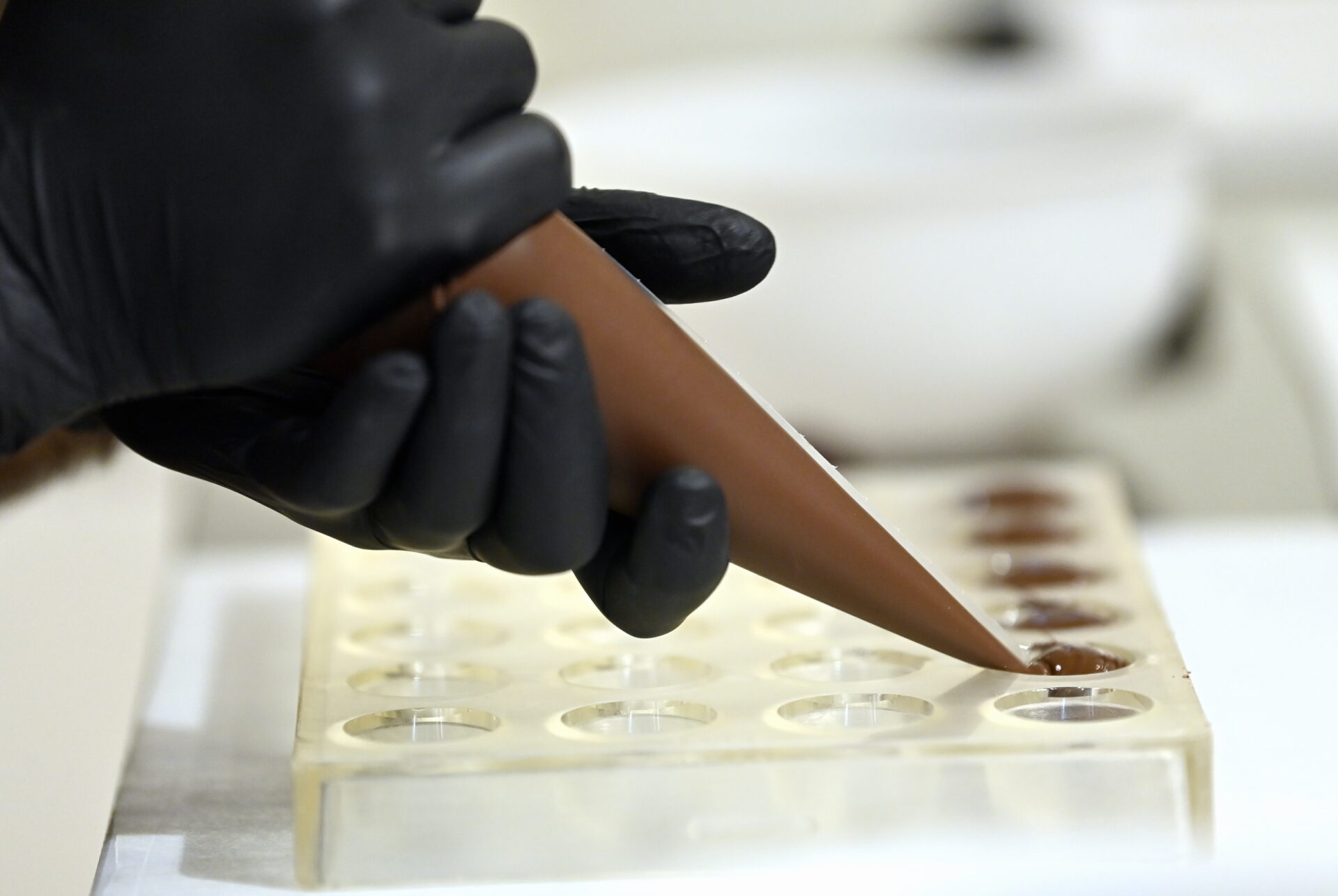For the first time in the event's history, the famous Festival del Chocolate de Tabasco in Mexico has invited a European country to be its partner host. And what other country to choose than Belgium, recognised internationally for making some of the best chocolate in the world?
The 11th edition of the festival, taking place in Vallahermosa, Tabasco from 16 to 20 November 2022, brings together chocolate lovers and professionals to celebrate the diversity of the confection.
Belgium's chocolate heritage is unquestioned. From the pralines (a delectable chocolate shell filled with a ganache) invented by Jean Neuhaus at the end of the 19th century, to housing the largest chocolate factory in the world (Barry Callebaut) – chocolate is part of Belgium's DNA, just as cocoa is anchored in the rich Mexican culture and gastronomy.

Chocolate made at the Neuhaus chocolate shop. Credit: Belga/ Eric l
The festival's main goal is to disseminate cocoa tradition, reaffirming and honouring the crucial contribution of Tabasco and its indigenous peoples who invented Xocolatl, a spiced, slightly bitter chocolate drink that was popular with Aztecs and Mayans, in the history of the product.
It has now invited Belgium, the "chocolate country par excellence," to the event as the guest of honour. For the occasion, seven award-winning chocolate artisans from Belgium, dubbed by the Belgian embassy in Mexico City as the "chocolate heart of Europe," will participate in the festival.
Related News
- Hidden Belgium: The most beautiful chocolate shop in Belgium
- Leonidas leaves Brussels and sets up new factory in Nivelles
From Pieter Vaes, who belongs to the select group of so-called "bean-to-bar" chocolatiers who buy their own cocoa beans and process them into chocolate, to Olivier Willems, who was crowned Chocolatier of the year in 2021 by Gault&Millau, will present their skills in person during demonstrations and tasting.
Meanwhile, Professor Patrick Van Damme (University of Ghent), a cocoa expert, will present the "Beyond Chocolate" initiative, a partnership of the Belgian government and the chocolate industry which works to ensure that the Belgian treat is not only good for consumers, but also for those that make it.

